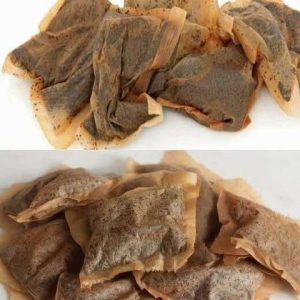Chin pimples are a common skin concern influenced by a combination of hormonal fluctuations, lifestyle habits, and skincare routines. Hormonal imbalances are often the leading factor, especially in adults, as the chin and jawline are particularly sensitive to hormonal changes. Many people notice breakouts during certain points in the menstrual cycle, pregnancy, or due to conditions like polycystic ovary syndrome (PCOS). These pimples are usually deeper, more painful, and cystic. Elevated levels of androgens, male hormones present in both men and women, overstimulate oil glands in this area, leading to clogged pores and inflammation.
Diet can also contribute significantly to chin acne, although its impact differs among individuals. High consumption of sugar, dairy, and refined carbohydrates may exacerbate breakouts by increasing insulin levels, which then prompts the skin to produce excess oil. This oil can clog pores, promoting inflammation and acne development. While not all people notice a direct connection between diet and pimples, many report clearer skin after reducing processed foods, sugary drinks, and other inflammatory items. Adjusting dietary habits is often a practical step in managing the frequency and severity of chin breakouts.
Skincare practices are another important factor in preventing or worsening acne on the chin. Using heavy or comedogenic products can block pores, while leaving makeup on overnight encourages bacterial growth and oil accumulation. On the other hand, over-washing, scrubbing, or using harsh products can disrupt the skin’s natural barrier, leading to rebound oil production and increased sensitivity. A balanced routine that respects the skin’s needs—gentle cleansing, appropriate products, and proper makeup removal—is essential to maintaining a clear chin area.
Stress is a well-established trigger for acne, particularly on the chin and jawline. When stressed, the body releases cortisol and other hormones that increase oil production in the skin, which can clog pores and worsen inflammation. Chronic stress is common in modern life, and its impact on skin health is often underestimated. Managing stress through exercise, meditation, proper sleep, or other relaxation techniques can reduce flare-ups and help maintain healthier skin over time. Emotional well-being is therefore an integral part of acne prevention.
Behavioral and environmental factors also influence chin pimples. Frequently touching the face transfers dirt, bacteria, and oils to the chin, worsening existing breakouts or preventing healing. Similarly, dirty phone screens, masks, or pillowcases can harbor bacteria and aggravate acne. Regularly cleaning items that come into contact with the face, maintaining good hygiene, and avoiding unnecessary contact with the chin can significantly improve skin condition. Small but consistent changes in habits often produce noticeable improvements.
Persistent or painful chin acne may indicate underlying medical conditions or sensitivities. Hormonal disorders, such as PCOS, or reactions to certain cosmetic ingredients can lead to chronic breakouts that self-care alone may not resolve. In such cases, consulting a dermatologist is advisable. Professionals can identify root causes, recommend targeted treatments, and suggest hormone testing when appropriate. Effectively managing chin pimples typically requires a combination of lifestyle modifications, proper skincare, stress management, and medical guidance when necessary, providing a holistic approach to clearer, healthier skin.




